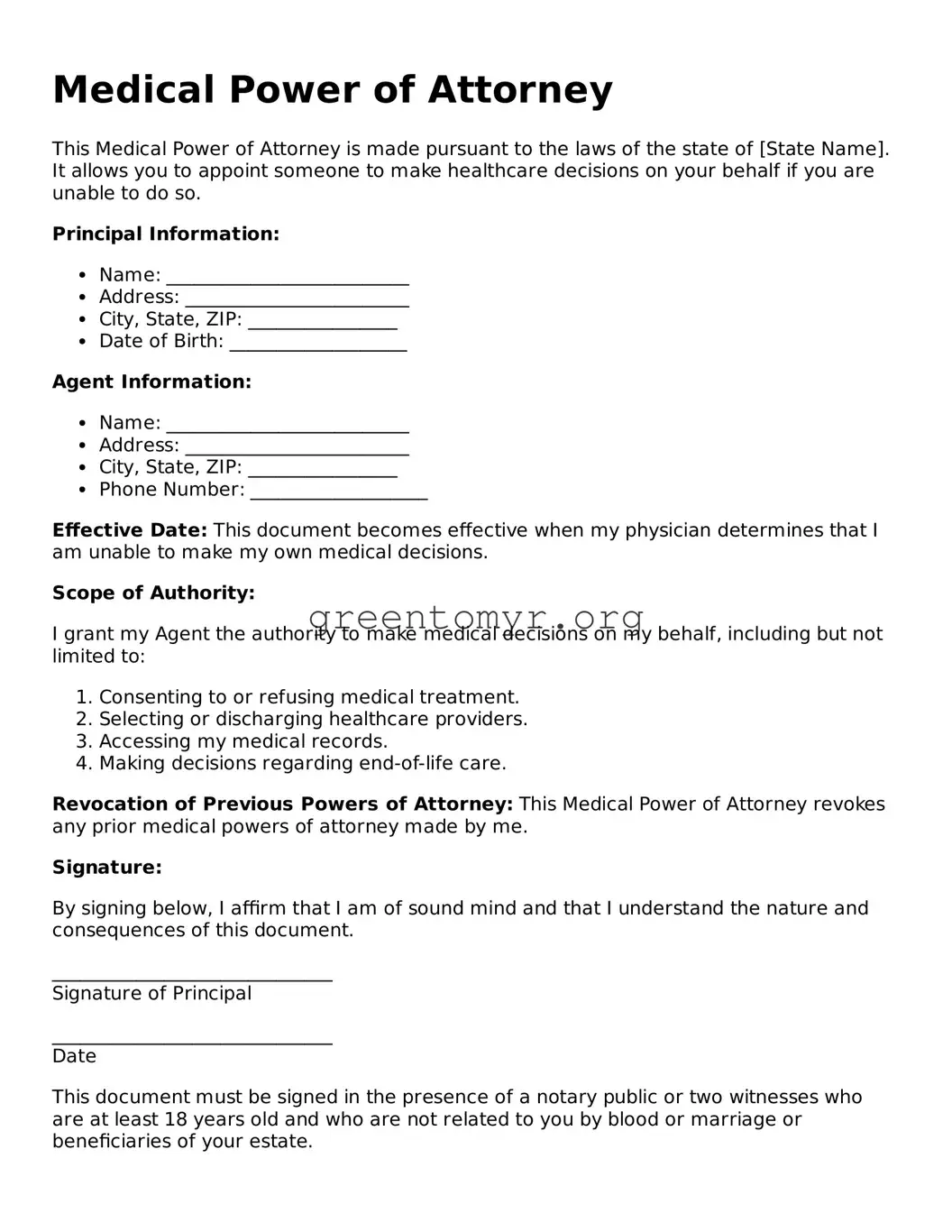Medical Power of Attorney
This Medical Power of Attorney is made pursuant to the laws of the state of [State Name]. It allows you to appoint someone to make healthcare decisions on your behalf if you are unable to do so.
Principal Information:
- Name: __________________________
- Address: ________________________
- City, State, ZIP: ________________
- Date of Birth: ___________________
Agent Information:
- Name: __________________________
- Address: ________________________
- City, State, ZIP: ________________
- Phone Number: ___________________
Effective Date: This document becomes effective when my physician determines that I am unable to make my own medical decisions.
Scope of Authority:
I grant my Agent the authority to make medical decisions on my behalf, including but not limited to:
- Consenting to or refusing medical treatment.
- Selecting or discharging healthcare providers.
- Accessing my medical records.
- Making decisions regarding end-of-life care.
Revocation of Previous Powers of Attorney: This Medical Power of Attorney revokes any prior medical powers of attorney made by me.
Signature:
By signing below, I affirm that I am of sound mind and that I understand the nature and consequences of this document.
______________________________
Signature of Principal
______________________________
Date
This document must be signed in the presence of a notary public or two witnesses who are at least 18 years old and who are not related to you by blood or marriage or beneficiaries of your estate.
Witnesses:
1. _______________________________
Signature of Witness 1
Date: __________________________
2. _______________________________
Signature of Witness 2
Date: __________________________
Notary Acknowledgment:
State of [State Name], County of ___________
This document was acknowledged before me on this __ day of ____________, 20__ by _____________________________________________________ (name of person).
____________________________________
Notary Public Signature
My Commission Expires: _____________
